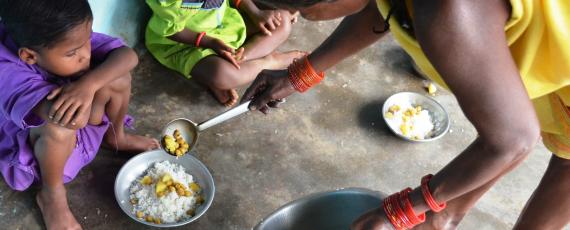Supplementary Nutrition Programme: an example of social protection in India

The Supplementary Nutrition Programme (SNP) under Integrated Child Development Services (ICDS) targets children under six years, adolescent girls, pregnant and lactating women to address the problem of under-nutrition, and is an important component that addresses undernutrition in the country.
ICDS in India started in 1975, and is regarded as the world’s largest community-based child development programme, operating through a network of childcare centres called Anganwadi having wide reach across rural and urban India.
Hot cooked meals are given at ICDS centres. Take-home rations (pre-mix) of fortified nutritional supplements are also provided to the different groups to overcome calorie and micronutrient deficiency. The basic costs are shared equally by the Centre and State Governments, and some states even make extra provisioning at their own expenditure. There are thus different models in operation under this social protection programme in India.
Given the outreach of the Integrated Child Development Services programme, the SNP has high potential to address the problem of undernutrition at scale.
LANSA in India has thus undertaken a case study of the SNP as part of the ongoing research under: What public and private actions are needed to strengthen the impacts of agri-food value chains on nutrition? The study is expected to come out with suggestions for policy by understanding the two distinct models of food distribution under SNP in two Indian states - Telangana and Tamil Nadu.








Add new comment